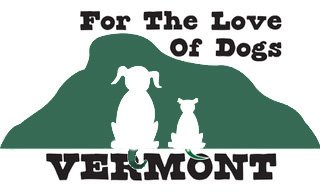Additional FAQs
-
In most cases, the answer is no. The majority of our dogs come up from Alabama, Tennessee, Mississippi, and Louisiana. We typically try to adopt out dogs PRIOR to coming to Vermont. We do our best to match the appropriate dog with the right family through a thorough application process and by informing you of the dog's history and sending videos and pictures of adoptable dogs. Dogs you can meet in Vermont are clearly marked as such on our website.
-
Unfortunately, we cannot hold any dogs. Because FLOD VT has no formal shelter facility, all of our adoptions are on a “first come, first served” basis. Is it possible that the dog you are interested in will still be available in a month? Absolutely. But we cannot guarantee or hold any dogs for any reason. We have a limited number of foster homes and need to move dogs to their “forever homes” as soon as possible.
-
Unfortunately, most of our dogs are not "cat-tested," but, in our experience, dogs and cats can live harmoniously if introduced properly.
-
Because we are a non-profit organization, we survive on donations and adoption fees. The adoption fee of $500 does not cover what we pay in total to vet, house, and transport our dogs. For example, a healthy puppy typically costs around $650.
-
First, you must fill out an Adoption Application and go through the approval process (this may take anywhere from 24 to 96 hours). At times, a dog may be able to get on transport within a week or two of approval; sometimes it’s longer (depending on the health and age of the dog). You will be made aware of when your dog’s potential transport date is, and you will be contacted by a FLOD VT team member the week of transport to arrange pick-up times and place. You will know as soon as possible if there are any changes in the transport dates for your dog. Please be aware that things can happen quickly and your dog may come up sooner or later than originally expected.
-
Most dogs will be available for pick-up in Middlesex VT, Sharon VT or Brattleboro VT (other locations as well). Please understand that we do not have a place for these pups to go after they get out off transport, so you will be responsible for making arrangements if you cannot pick up your dog at your designated time.
-
Please bring a leash, a collar, and an ID tag. Some dogs (puppies typically) do not know how to walk on a leash and will need to be carried. HOWEVER, you will want to attach the leash to their collar in case they jump down.
-
Yes, your dog will come with its veterinary paperwork from the South. Please bring this paperwork with you when you schedule an appointment with your own vet.
-
Yes, these dogs are on transport for 24 hours. It is extremely common for your dog to be smelly and dirty.
-
It is 100% normal for dogs and puppies to get worms. Prior to transport, each dog has a negative fecal result from the vet (meaning no worms, parasites, etc. show up on their fecal exam). HOWEVER, because of the stress of transport and worms' ability to stay in the intestinal track, they can often reappear. It is very common and nothing to be too worried about. Just pick up their poop and dispose of it right after they go.If your dog or puppy does have worms, you will need to take a stool sample to your own veterinarian and get dewormer from them.
-
It is normal for dogs and puppies to get worms, whether in the South or in Vermont. FLOD VT does not cover this cost.
-
Now is the ideal time to put your dog on whatever food you would like to feed them. Because there have been several transitions (foster, transport) you have the opportunity to start your dog on a healthy diet. If you have any questions about dog food, please ask.
-
Yes, diarrhea can be caused by stress in dogs (also worms, change of diet, etc). Because your dog has experienced multiple transitions in a short period of time, it is very common for dogs to have diarrhea. What you want to look for is any blood or mucus in the stool, this may indicate something more serious. Also, make sure that your dog is drinking plenty of water and staying hydrated. Typically, a dog’s diarrhea can take anywhere from a couple of days to over a week to become formed, hard stool.


